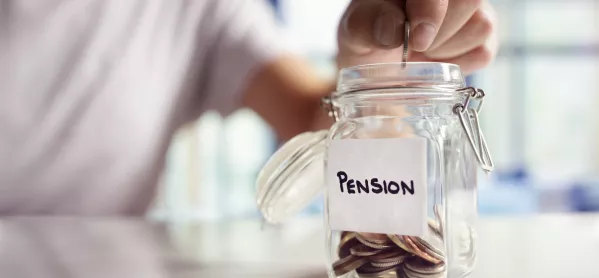The Teachers’ Pension Scheme has been hit by a £7 billion cost that one analyst has warned could lead to teacher pay being frozen or pensions being made less generous.
The TPS’s annual accounts for 2018-19, published yesterday, outline the expected impact of a Court of Appeal ruling about changes to public sector pensions schemes that were introduced in 2015.
The changes made the schemes less generous, but included transitional provisions to protect older members.
Quick read: Teachers 'can't afford' to pay into pensions
Pensions: Young teachers risk retirements as pension opt-outs climb by a fifth
Exclusive: Academies ‘blackmail’ teachers to take worse pensions
Following legal action by judges and firefighters, the Court of Appeal found in December that these arrangements resulted in direct age discrimination against younger members of the schemes, and were therefore unlawful.
Last month, the Supreme Court rejected an appeal, and the government said the finding would affect all the main public sector pension schemes, and cost taxpayers £4 billion annually.
Today’s TPS accounts say: “In line with other public service pension schemes TPS has considered the potential impact of the outcome on the scheme and, as a result, felt it prudent to increase past service costs.
“For the Teachers’ Pension Scheme this has been estimated at £7 billion and has been recognised as a past service cost in 2018-19.”
It says that this represents just under 2 per cent of the total scheme liability as of 31 March 2019
The £7 billion figure was calculated using a number of key assumptions, and the accounts warn that if salaries were to grow by 0.5 per cent more than assumed then the cost of the court ruling would increase by about £4.5 billion.
Tom Selby, senior analyst at investment firm AJ Bell, told Tes there was “significant uncertainty” about the cost of the ruling, and how the government would fund it.
He said: “In the short term clearly some teachers will benefit through bigger pensions, but over the longer term I expect the government to claw this cash back, one way or another.”
Mr Selby explained that the “obvious options” were to hold back or freeze teacher pay, make the pension scheme less generous, or allow taxpayers, in general, to pick up the bill.
He added: “It’s gone fairly unnoticed so far but this could be an absolute nightmare for Boris Johnson – a huge pensions tax bill and a possible fight with public sector unions, just after delivering a potentially divisive No Deal Brexit.”
The Department for Education has been contacted for comment.




